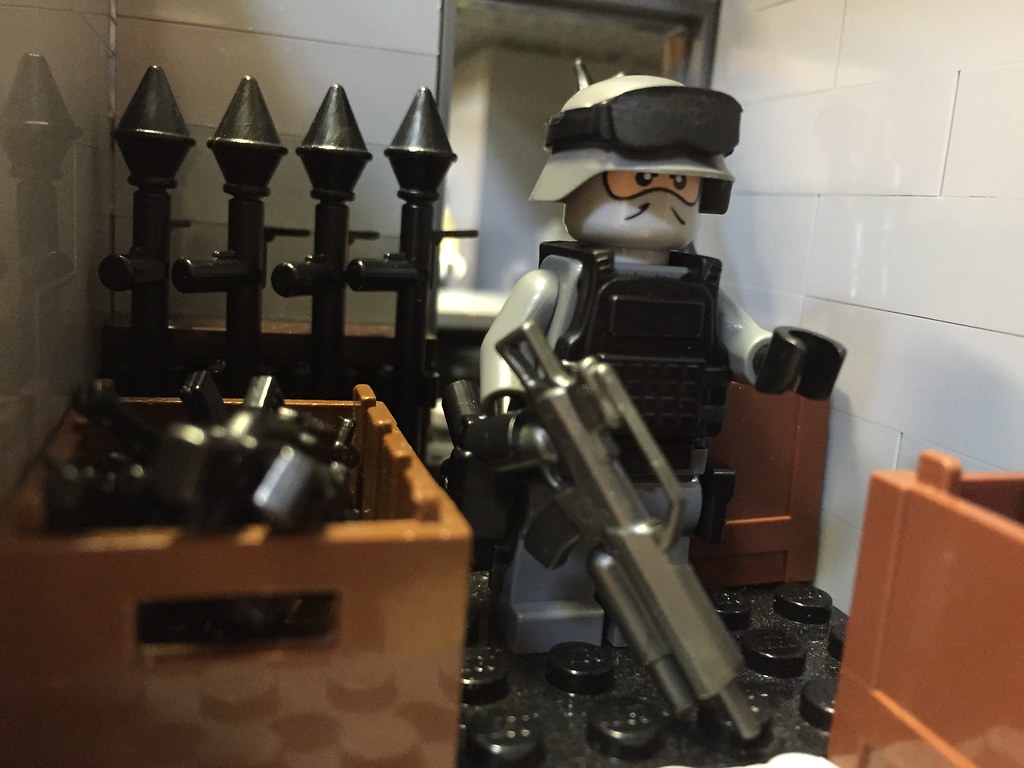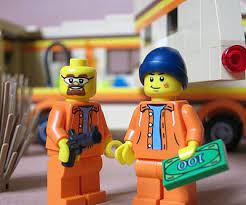- Joined
- Jan 17, 2010
- Messages
- 4,522
- Reaction score
- 5,485
The country goes to the polls this weekend after a campaign marked by bloodshed and the assassination of a candidate

Ecuadoreans will this weekend choose between a centre-right presidential candidate who is the scion of one of country’s wealthiest families, and a leftist disciple of the former president Rafael Correa, in an election overshadowed by violent crime and the assassination of a third candidate.
Polls ahead of Sunday’s vote put the banana industry heir Daniel Noboa, 35, slightly ahead of Luisa González, who has promised free medicine and increased worker protections.

Both presidential candidates have promised to militarise ports and airports to fight drug trafficking as headline-grabbing violence becomes ever more brutal and commonplace, particularly in coastal regions around the port cities of Guayaquil, Manta and Esmeraldas, where gangs vie for territory and trafficking routes with the backing of Mexican cartels.
The campaign has been marked by bloodshed, including the brazen assassination of the anti-corruption candidate Fernando Villavicencio, who was shot in August as he left a campaign event. Last week, six Colombian suspects in the assassination were themselves murdered in prison. A seventh suspect was killed in another jail the following day.
In just a few years, Ecuador has gone from being an island of peace compared to its cocaine-producing neighbours, Colombia and Peru, to becoming one of the most violent nations in the region.

At more than 5,900, the number of murders so far this year has already surpassed records from previous years. More than a third of those killings were committed in the Guayas region around Guayaquil, Ecuador’s largest city.
Just on Wednesday, there were five street killings in Durán, a riverside district lying east of Guayaquil just across the Guayas River. Warring gangs have turned this neighbourhood, crippled by protection rackets, into a battlefield of tit-for-tat murders.
At the scene of one such attack, the bodies of two men lay crumpled on a fallen motorbike after they were ambushed in broad daylight.
Behind a line of yellow police tape, a crowd gathered, some distraught relatives, others curious bystanders.

An anguished wail went up as the mother of one of the victims arrived, her whole body shaking as she sobbed. Another older woman was held back as she strained to push past the tape.
“Let me pass, he’s my son. Just let me hug him one last time,” she implored an impassive police officer, as a forensic van pulled up and hazmat-suited officials marked out a dozen bullet casings with numbered yellow plastic blocks.
“A year ago, we lived in peace. Now the people are terrified,” said one onlooker, who did want to be identified. “People shut up their shops early, they don’t let their kids out to play anymore.”
Ecuador’s national anti-narcotics director, Gen Pablo Ramírez, insisted the country is not a lost cause. “This is not a lost war,” he told the Guardian, but he said it was not an equal fight. “We fight in unequal circumstances, [the gangs] have more weapons and money and we are constrained by the rule of law.”

The country’s most powerful criminal group, Los Choneros, splintered in 2020 with the killing of its leader Jorge Luis Zambrano, alias Rasquiña, spawning a web of rivals – the Lagartos, Tiguerones and Chone Killers to name a few.
Run from inside and outside prison, the gangs have complex alliances with Mexican factions such as the Sinaloa and Jalisco Nueva Generación cartels, as well as Colombian guerrilla groups and Balkan traffickers.
The battle for control used to play out in the immense El Litoral prison complex on the outskirts of Guayaquil, the site of a string of grisly riots and massacres. But now the fighting has spilled onto the streets.

“Organised crime is a parallel state in Ecuador; they have taken the judiciary, the legislature, they are even in the political parties, they are everywhere,” said Arianna Tanca, a political scientist and researcher in Ecuador.
“They have much more power than the president, much more resources, much more money and they have the weapon of fear,” she said.
Built on islands in the delta of the Guayas River, Guayaquil is a shifting landscape of shiny high-rise buildings, luxurious gated communities and riverside slums wracked by crime and neglect.

The waterways provide rich drug smuggling possibilities and the city’s ports – mainly designed for the export of bananas – had “poor controls”, admitted Ramírez. He added scanners were being installed, which he said would be able to inspect 100% of exports by the middle of next year.
The police had stopped more drugs so far this year than any before, seizing 172 tonnes of mostly cocaine, 55 tonnes of which was seized at ports, he added.
Last month, in one of those poor neighbourhoods, Joaquín Pérez, 11, was sitting on the pavement, drinking a soda with friends and neighbours when motorbike-riding gunmen opened fire with an automatic weapon. Joaquín was hit by more than 30 rounds.
“I saw him on the floor. I thought it was just one bullet and I went running to pick him up and take him to the hospital,” sobbed his sister Gema Pérez, 23.
Three adults were killed in the attack, and six people – including two girls aged five and eight – were injured. Police believe the gunmen’s target may have been a neighbour who escaped unharmed and later fled.

“[Joaquín] was my special boy. Now it’s so quiet here without him,” she said, sitting in a one-storey breeze-block home, as other relatives cried softly in the gloom.
“My nephew was the hope of the household, he was going to be the one who would graduate, study, get ahead – but that dream was cut short,” said an uncle, Alex Peréz, 42.
The daily toll of victims has focused attention on Ecuador’s flailing political class, locked in rivalries and infighting, and apparently incapable of reining in the violence.
“Whoever wins, I hope they try to work with the other one,” said Tanca, the analyst. “Politicians are fighting each other about nonsense, but every day Ecuadorean people are dying in the street.”
https://www.theguardian.com/world/2023/oct/14/ecuador-presidential-election-violence-crime

Ecuadoreans will this weekend choose between a centre-right presidential candidate who is the scion of one of country’s wealthiest families, and a leftist disciple of the former president Rafael Correa, in an election overshadowed by violent crime and the assassination of a third candidate.
Polls ahead of Sunday’s vote put the banana industry heir Daniel Noboa, 35, slightly ahead of Luisa González, who has promised free medicine and increased worker protections.

Both presidential candidates have promised to militarise ports and airports to fight drug trafficking as headline-grabbing violence becomes ever more brutal and commonplace, particularly in coastal regions around the port cities of Guayaquil, Manta and Esmeraldas, where gangs vie for territory and trafficking routes with the backing of Mexican cartels.
The campaign has been marked by bloodshed, including the brazen assassination of the anti-corruption candidate Fernando Villavicencio, who was shot in August as he left a campaign event. Last week, six Colombian suspects in the assassination were themselves murdered in prison. A seventh suspect was killed in another jail the following day.
In just a few years, Ecuador has gone from being an island of peace compared to its cocaine-producing neighbours, Colombia and Peru, to becoming one of the most violent nations in the region.
At more than 5,900, the number of murders so far this year has already surpassed records from previous years. More than a third of those killings were committed in the Guayas region around Guayaquil, Ecuador’s largest city.
Just on Wednesday, there were five street killings in Durán, a riverside district lying east of Guayaquil just across the Guayas River. Warring gangs have turned this neighbourhood, crippled by protection rackets, into a battlefield of tit-for-tat murders.
At the scene of one such attack, the bodies of two men lay crumpled on a fallen motorbike after they were ambushed in broad daylight.
Behind a line of yellow police tape, a crowd gathered, some distraught relatives, others curious bystanders.

An anguished wail went up as the mother of one of the victims arrived, her whole body shaking as she sobbed. Another older woman was held back as she strained to push past the tape.
“Let me pass, he’s my son. Just let me hug him one last time,” she implored an impassive police officer, as a forensic van pulled up and hazmat-suited officials marked out a dozen bullet casings with numbered yellow plastic blocks.
“A year ago, we lived in peace. Now the people are terrified,” said one onlooker, who did want to be identified. “People shut up their shops early, they don’t let their kids out to play anymore.”
Ecuador’s national anti-narcotics director, Gen Pablo Ramírez, insisted the country is not a lost cause. “This is not a lost war,” he told the Guardian, but he said it was not an equal fight. “We fight in unequal circumstances, [the gangs] have more weapons and money and we are constrained by the rule of law.”

The country’s most powerful criminal group, Los Choneros, splintered in 2020 with the killing of its leader Jorge Luis Zambrano, alias Rasquiña, spawning a web of rivals – the Lagartos, Tiguerones and Chone Killers to name a few.
Run from inside and outside prison, the gangs have complex alliances with Mexican factions such as the Sinaloa and Jalisco Nueva Generación cartels, as well as Colombian guerrilla groups and Balkan traffickers.
The battle for control used to play out in the immense El Litoral prison complex on the outskirts of Guayaquil, the site of a string of grisly riots and massacres. But now the fighting has spilled onto the streets.

“Organised crime is a parallel state in Ecuador; they have taken the judiciary, the legislature, they are even in the political parties, they are everywhere,” said Arianna Tanca, a political scientist and researcher in Ecuador.
“They have much more power than the president, much more resources, much more money and they have the weapon of fear,” she said.
Built on islands in the delta of the Guayas River, Guayaquil is a shifting landscape of shiny high-rise buildings, luxurious gated communities and riverside slums wracked by crime and neglect.
The waterways provide rich drug smuggling possibilities and the city’s ports – mainly designed for the export of bananas – had “poor controls”, admitted Ramírez. He added scanners were being installed, which he said would be able to inspect 100% of exports by the middle of next year.
The police had stopped more drugs so far this year than any before, seizing 172 tonnes of mostly cocaine, 55 tonnes of which was seized at ports, he added.
Last month, in one of those poor neighbourhoods, Joaquín Pérez, 11, was sitting on the pavement, drinking a soda with friends and neighbours when motorbike-riding gunmen opened fire with an automatic weapon. Joaquín was hit by more than 30 rounds.
“I saw him on the floor. I thought it was just one bullet and I went running to pick him up and take him to the hospital,” sobbed his sister Gema Pérez, 23.
Three adults were killed in the attack, and six people – including two girls aged five and eight – were injured. Police believe the gunmen’s target may have been a neighbour who escaped unharmed and later fled.

“[Joaquín] was my special boy. Now it’s so quiet here without him,” she said, sitting in a one-storey breeze-block home, as other relatives cried softly in the gloom.
“My nephew was the hope of the household, he was going to be the one who would graduate, study, get ahead – but that dream was cut short,” said an uncle, Alex Peréz, 42.
The daily toll of victims has focused attention on Ecuador’s flailing political class, locked in rivalries and infighting, and apparently incapable of reining in the violence.
“Whoever wins, I hope they try to work with the other one,” said Tanca, the analyst. “Politicians are fighting each other about nonsense, but every day Ecuadorean people are dying in the street.”
https://www.theguardian.com/world/2023/oct/14/ecuador-presidential-election-violence-crime


